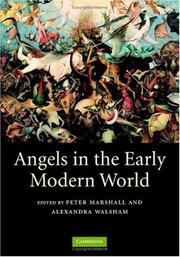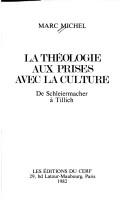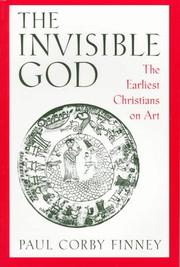| Listing 1 - 10 of 59 | << page >> |
Sort by
|
Book
ISBN: 3666101585 3525101589 9783525101582 Year: 2019 Publisher: Göttingen: Vandenhoeck und Ruprecht,
Abstract | Keywords | Export | Availability | Bookmark
 Loading...
Loading...Choose an application
- Reference Manager
- EndNote
- RefWorks (Direct export to RefWorks)
Book
ISBN: 9783525101308 9783647101309 3525101309 1306063612 3647101303 3666101305 Year: 2013 Volume: 101 Publisher: Göttingen: Vandenhoeck und Ruprecht,
Abstract | Keywords | Export | Availability | Bookmark
 Loading...
Loading...Choose an application
- Reference Manager
- EndNote
- RefWorks (Direct export to RefWorks)
Transnationalism. --- Internationalism. --- Christianity and international relations. --- Globalization --- Theology --- Christianity and culture --- Religious aspects --- Christianity. --- History --- 2:001 --- 2:001 Theologie als wetenschap. Studie en methode van de theologie --- Theologie als wetenschap. Studie en methode van de theologie --- Globalization - Religious aspects - Christianity. --- Theology - History - 19th century. --- Theology - History - 20th century. --- Christianity and culture - History - 19th century. --- Christianity and culture - History - 20th century.
Book
ISBN: 9783161517426 3161517423 Year: 2012 Volume: 290 Publisher: Tübingen: Mohr Siebeck,
Abstract | Keywords | Export | Availability | Bookmark
 Loading...
Loading...Choose an application
- Reference Manager
- EndNote
- RefWorks (Direct export to RefWorks)
Early Judaism and early Christianity emerged during the Hellenistic and early Roman imperial era. They were, naturally, confronted with the Hellenistic and the Roman religion. The question therefore arose as to whether Jews or Christians were free to participate in religious activities alien to the religious heritage of their own. In his articles, Karl-Gustav Sandelin presents documentary material showing that this problem was a burning issue within Judaism from the beginning of the Hellenistic period until the end of the first century C.E. Several Jewish individuals converted to the Hellenistic or the Roman religion. Such behavior was also discussed and generally condemned, for example by the Books of Maccabees and authors such as Philo of Alexandria and Flavius Josephus. A similar problem is to be found in the New Testament, notably in the letters of Paul, especially in the First letter to the Corinthians and in the Revelation of John.
Religious pluralism. --- Judaism --- Christianity and other religions. --- Christianity and culture --- Pluralisme religieux --- Judaïsme --- Christianisme --- Christianisme et civilisation --- Relations. --- History --- Relations --- Histoire --- Religious pluralism --- Christianity and other religions --- Judaïsme --- Judaism - Relations --- Christianity and culture - History - Early church, ca 30-600
Book
ISBN: 285984001X 9782859840013 Year: 1977 Volume: 1 Publisher: Paris: Copernic,
Abstract | Keywords | Export | Availability | Bookmark
 Loading...
Loading...Choose an application
- Reference Manager
- EndNote
- RefWorks (Direct export to RefWorks)
Christianity and culture --- History --- -#GOSA:II.P.Alg.M --- Contextualization (Christian theology) --- Culture and Christianity --- Inculturation (Christian theology) --- Indigenization (Christian theology) --- Culture --- -Christianity and culture --- #GOSA:II.P.Alg.M --- Christianity and culture - History - Early church, ca 30-600
Book
ISBN: 9783451022531 3451022532 Year: 2013 Volume: 253 Publisher: Freiburg im Breisgau: Herder,
Abstract | Keywords | Export | Availability | Bookmark
 Loading...
Loading...Choose an application
- Reference Manager
- EndNote
- RefWorks (Direct export to RefWorks)
Socio-rhetorical criticism --- 229 --- Apocriefen. Pseudepigrafen. Deutero-canonieke boeken --- Conferences - Meetings --- Emperor worship --- Christianity and culture --- Biblical teaching --- History --- Bible --- Criticism, interpretation, etc --- Emperor worship - Rome - Biblical teaching - Congresses --- Christianity and culture - History - Early church, ca 30-600 - Congresses

ISBN: 0521843324 9780521843324 Year: 2006 Publisher: Cambridge: Cambridge university press,
Abstract | Keywords | Export | Availability | Bookmark
 Loading...
Loading...Choose an application
- Reference Manager
- EndNote
- RefWorks (Direct export to RefWorks)
Christian fundamental theology --- anno 1600-1699 --- anno 1500-1599 --- Angels --- Christianity and culture --- Anges --- Christianisme et civilisation --- History --- Histoire --- -Angels --- -Christianity and culture --- -235.1 --- Contextualization (Christian theology) --- Culture and Christianity --- Inculturation (Christian theology) --- Indigenization (Christian theology) --- Culture --- Angelology --- Cherubim --- Cherubs (Spirits) --- Divine messengers --- Seraphim --- Spirits --- -History --- -Goede engelen --- 235.1 Goede engelen --- Goede engelen --- 235.1 --- Angels - History - 16th century --- Angels - History - 17th century --- Christianity and culture - History - 16th century --- Christianity and culture - History - 17th century

ISBN: 2204017698 9782204017695 Year: 1982 Volume: 113 Publisher: Paris: Cerf,
Abstract | Keywords | Export | Availability | Bookmark
 Loading...
Loading...Choose an application
- Reference Manager
- EndNote
- RefWorks (Direct export to RefWorks)
Christianity and culture --- Theology, Doctrinal --- History --- Schleiermacher, Friedrich, --- Tillich, Paul, --- #GGSB: Dogmatiek --- #GGSB: Geloof --- #GGSB: Christologie --- #GGSB: Soteriologie --- #GGSB: Natuurlijke theologie --- #GGSB: Protestantse dogmatiek --- #gsdb3 --- Theses --- Contextualization (Christian theology) --- Culture and Christianity --- Inculturation (Christian theology) --- Indigenization (Christian theology) --- Culture --- Schleiermacher, Friedrich Ernst Daniel --- Schleiermacher, Friedrich --- Schleiermacher, Friedrich Daniel Ernst --- Schleiermacher, Friedrich Daniel Ernst. --- Tillich, Paul --- Christologie --- Dogmatiek --- Geloof --- Natuurlijke theologie --- Protestantse dogmatiek --- Soteriologie --- Christianity and culture - History - 19th century --- Theology, Doctrinal - History - 19th century --- Christianity and culture - History - 20th century --- Theology, Doctrinal - History - 20th century --- Schleiermacher, Friedrich, - 1768-1834 --- Tillich, Paul, - 1886-1965

ISBN: 1280443413 9786610443413 0195359569 1423758544 0585181462 9780585181462 9781423758549 6610443416 0195113810 0195082524 9780195082524 9781280443411 0197739644 Year: 1994 Publisher: New York: Oxford university press,
Abstract | Keywords | Export | Availability | Bookmark
 Loading...
Loading...Choose an application
- Reference Manager
- EndNote
- RefWorks (Direct export to RefWorks)
This treatise refutes the assumption that early Christians were opposed in principle to visual images and thus did not produce art. It shows that once Christians acquired legal status and were able to own property and places of worship, they started to produce art as decoration.
Art, Early Christian. --- Christian art and symbolism --- Christianity and culture --- Fathers of the church. --- God (Christianity) --- Christianity --- Trinity --- Church fathers --- Patristics --- Philosophy, Patristic --- Christians --- Early Christian art --- History --- Knowableness --- History of doctrines --- To 500 --- Primitive and early church, ca. 30-600 A.D. --- God --- Art [Early Christian ] --- Fathers of the church --- Christianity and culture - History - Early church, ca. 30-600. --- God - Knowableness - History of doctrines - Early church, ca. 30-600. --- Christian art and symbolism - To 500 --- Christianity and culture - History - Early church, ca 30-600 --- Art, Early Christian --- God - - History of doctrines - - Knowableness - - Early church, ca. 30-600 --- -Fathers of the church --- -Art, Early Christian. --- God -
Book
ISBN: 9783402109113 3402109115 Year: 2008 Volume: 3 Publisher: Münster: Aschendorff,
Abstract | Keywords | Export | Availability | Bookmark
 Loading...
Loading...Choose an application
- Reference Manager
- EndNote
- RefWorks (Direct export to RefWorks)
Christian church history --- Patrology --- anno 300-399 --- anno 100-199 --- anno 200-299 --- Christianity and other religions --- Church history --- Christianity and culture --- Greek --- Roman --- History --- Christianity and other religions - Greek --- Christianity and other religions - Roman --- Church history - Primitive and early church, ca. 30-600 --- Christianity and culture - History - Early church, ca 30-600
Book
ISSN: 1631946X ISBN: 9782853997102 2853997103 2821882904 Year: 2008 Volume: *40 Publisher: Aix-en-Provence: Publications de l'Université de Provence,
Abstract | Keywords | Export | Availability | Bookmark
 Loading...
Loading...Choose an application
- Reference Manager
- EndNote
- RefWorks (Direct export to RefWorks)
De nombreux ouvrages ont traité de la société ou des sociétés du Moyen Âge, mais ce sont le plus souvent les structures sociales, ou encore les institutions dans leurs rapports avec la société, qui ont retenu l'attention. Choisir pour thème de réflexion « vivre en société » nécessite d'abord de s'interroger sur cette expression pour en examiner toutes les implications et pour envisager la façon de les rapporter à l'ensemble de la période médiévale : d'où la nécessité de revenir sur le sens des mots et d'abord sur celui de « société », dans le cadre de l'occident chrétien. Parallèlement, dire que l'on vit en société implique que l'on puisse vivre en dehors, par volonté ou par contrainte : la dialectique de l'inclusion et de l'exclusion est donc au centre de la réflexion sur toute forme de société. Les quinze études présentées ici sont le reflet d'un travail collectif d'une année qui a rassemblé des historiens médiévistes connus et un certain nombre de leurs élèves, nouveaux médiévistes dont beaucoup n'en sont pas à leur première publication.
Civilization, Medieval. --- Christianity and culture --- Civilisation médiévale --- Christianisme et civilisation --- History --- Histoire --- Civilization, Medieval --- 940.1 --- Geschiedenis van Europa: Middeleeuwen:--(ca.375-1492) --- 940.1 Geschiedenis van Europa: Middeleeuwen:--(ca.375-1492) --- Civilisation médiévale --- Medieval civilization --- Middle Ages --- Civilization --- Chivalry --- Renaissance --- Christianity and culture - History - Middle Ages, 600-1500 --- société --- valeurs --- Europe --- Moyen-âge --- conditions sociales
| Listing 1 - 10 of 59 | << page >> |
Sort by
|

 Search
Search Feedback
Feedback About UniCat
About UniCat  Help
Help News
News